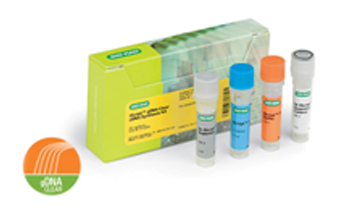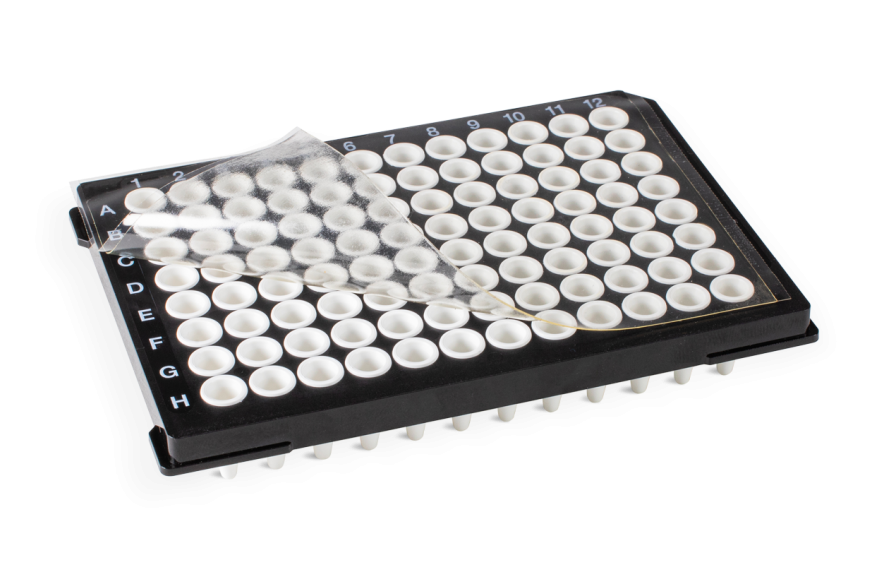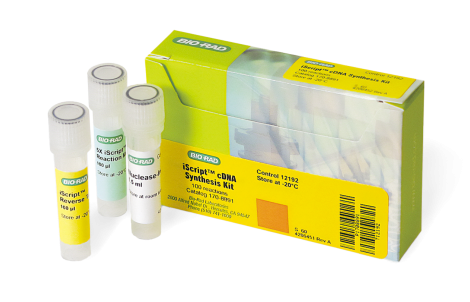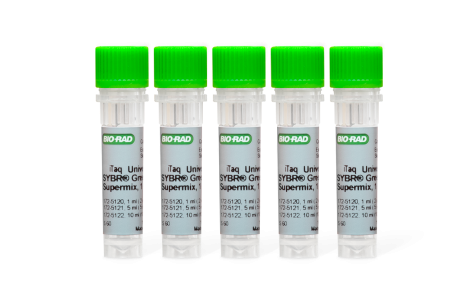-


-
iScript™ gDNA Clear cDNA Synthesis Kit
The iScript gDNA Clear cDNA Synthesis Kit integrates an effective DNase digestion step with fast and sensitive first-strand cDNA synthesis for accurate qPCata.
This kit combines the iScript Reverse Transcription Supermix and a specially formulated DNase to effectively eliminate genomic DNA (gDNA) from purified RNA in 10 minutes. qPCR-ready cDNA free of contaminant gDNA is generated in 36 minutes.
-
0.000.00
-
The iScript gDNA Clear cDNA Synthesis Kit integrates an effective DNase digestion step with fast and sensitive first-strand cDNA synthesis for accurate qPCata.
This kit combines the iScript Reverse Transcription Supermix and a specially formulated DNase to effectively eliminate genomic DNA (gDNA) from purified RNA in 10 minutes. qPCR-ready cDNA free of contaminant gDNA is generated in 36 minutes.
Key Features and Benefits
·Effective genomic DNA removal — without compromising cDNA synthesis efficiency
·Proprietary DNase buffer — maintaining RNA integrity during gDNA removal
·Convenient all-in-one, single-tube supermix — for reproducible and efficient cDNA synthesis
·Ready-to-use no-RT control supermix provided — for monitoring gDNA contamination
·Superior sensitivity and reproducibility — works with a broad linear dynamic range of input total RNA (1 µg–1 pg)
·Unbiased qPCR data — consistent efficiency, sensitivity, and reproducibility in qPCR results even after gDNA removal
gNA-free cDNA ready in 36 minutes
This kit allows you to effectively remove contaminating gDNA and reliably synthesize cDNA with minimal hands-on time in an easy-to-follow protocol, resulting in cDNA free of genomic DNA in 36 minutes.
Importance of Addressing gDNA Contamination in RT-qPCR Gene Expression
gDNA contamination in RNA samples can be amplified in RT-qPCR, biasing the results for the transcript of interest. This problem is especially acute for low expressing genes — even a few copies of gDNA contamination can shift Cq values dramatically.
Benefit of Using Reverse Transcriptase with RNase H+ in RT-qPCR Gene Expression
RNase H works to degrade RNA that is hybridized to DNA. During cDNA synthesis, the RNase H domain of the Moloney Murine Leukemia Virus (MMLV) reverse transcriptase degrades the template RNA as the cDNA is synthesized.
his activity ensures the one-to-one conversion of RNA into cDNA molecules, resulting in more accurate gene expression data. Reverse transcriptase in all iScript reverse transcription reagents exhibits RNase H activity.




